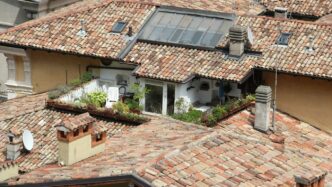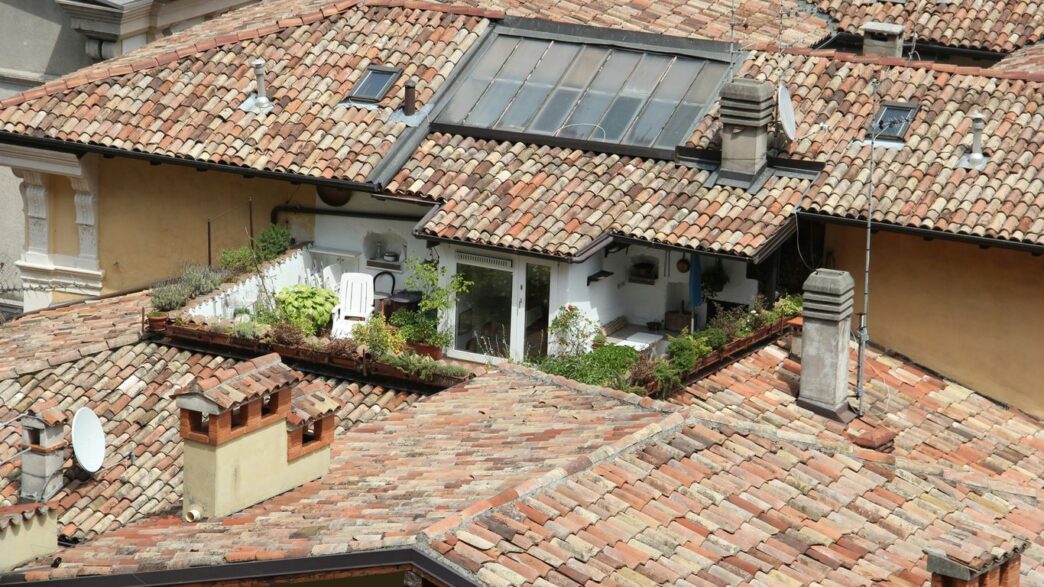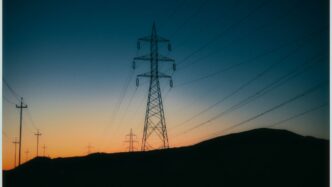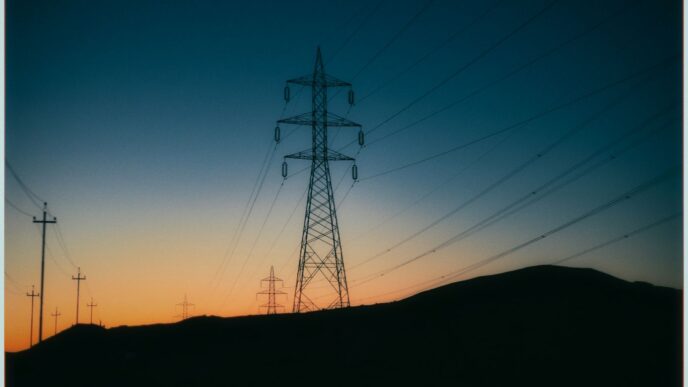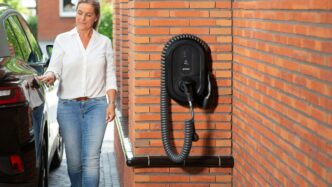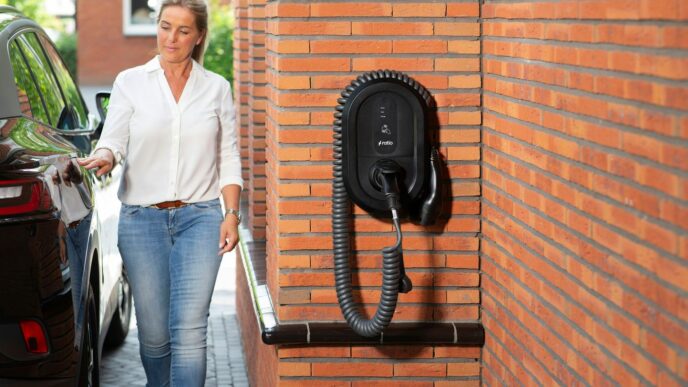Thinking about going solar with Sunnova in 2025? It’s a big decision, and honestly, the solar world can feel a bit like a rollercoaster. Sunnova, a major player, has been around for a while, offering what they call ‘energy as a service.’ This basically means they aim to make solar easy, handling the tech and the long-term care for you. But like any big company, especially in a shifting industry, it’s smart to look at all the angles before you sign on the dotted line. We’ll break down what Sunnova offers, how they work, and what customers are saying, so you can figure out if they’re the right fit for your home.
Key Takeaways
- Sunnova’s main pitch is ‘energy as a service,’ aiming for a hands-off solar experience for homeowners with a 25-year service agreement.
- The company works with local installers and uses vetted equipment manufacturers, offering a range of panels, inverters, and batteries.
- Sunnova provides various financing and lease options, often with no upfront cost, and is involved in initiatives to help those with lower credit scores access solar.
- Customer reviews show mixed experiences, with some praising the service and others reporting issues with customer support, as noted by the Better Business Bureau.
- Before choosing Sunnova, it’s wise to compare them with other providers and ask detailed questions about pricing, equipment, and their approach to resolving any service concerns.
Understanding Sunnova’s Solar Offerings
Sunnova really tries to make going solar feel like just another utility bill, but for your own power. They call it "Energy as a Service." Basically, you get solar panels and related gear, and Sunnova manages it all for you. It’s meant to be a pretty hands-off experience for homeowners. They aim to simplify the whole process, so you don’t have to piece together different companies for panels, inverters, and batteries.
Sunnova’s "Energy as a Service" Approach
This approach is all about making solar accessible without a big upfront cost. Sunnova handles the equipment, installation, and maintenance. You pay a monthly fee, and in return, you get solar power. It’s like subscribing to a service rather than buying a big piece of equipment outright. This model is designed to take the financial and technical burden off your shoulders. The goal is to provide a predictable energy cost for 25 years.
The Sunnova Adaptive Home Concept
Sunnova is also pushing the idea of an "Adaptive Home." This goes beyond just rooftop solar panels. It involves integrating other smart energy technologies like home batteries, EV chargers, and smart controls for your appliances. The idea is to create a more connected and efficient home energy system. Sunnova packages these components together, so you don’t have to source them individually. It’s about creating a more robust and flexible energy setup for your home.
Sunnova’s 25-Year Service Guarantee
One of the big promises Sunnova makes is a 25-year service guarantee. This means they commit to maintaining and servicing your solar system for a quarter of a century. If something goes wrong with the equipment they installed, you call Sunnova, and they’re supposed to send a team to fix it. They highlight this commitment by mentioning how they addressed system damage after major weather events, fixing systems at no extra cost to customers. This long-term commitment is a key part of their "set it and forget it" pitch.
Sunnova’s Equipment and Installation Network
When you go solar with Sunnova, you’re not just getting panels on your roof; you’re tapping into a whole system managed by them. They’ve set up a network to handle everything, from the gear they use to the folks who actually put it all together.
Sunnova’s Vetted Equipment Manufacturers
Sunnova doesn’t just slap any old solar equipment on your house. They have a list of manufacturers and specific products that they’ve already checked out and approved. This means the panels, inverters, and even battery storage systems (like those from Tesla, Enphase, or Generac) that get installed on your home have met Sunnova’s standards. They’re pretty strict about this, saying nothing goes on a roof unless they’ve given it the green light first. This approach aims to ensure the equipment is reliable and works well with their overall system.
The Role of Local Sunnova Installers
Sunnova works with local contractors across the country to get the job done. These aren’t Sunnova employees, but rather independent companies that Sunnova partners with. They handle the actual installation process. Sunnova vets these local installers, and they work from Sunnova’s approved list of equipment. The idea is that you get the benefit of local expertise and service, backed by Sunnova’s standards and equipment choices. You’ll typically connect with one of these local dealers first, who will then assess your home, often using satellite images, and put together a system proposal based on Sunnova’s approved components.
Sunnova’s System Monitoring Capabilities
Once your system is up and running, Sunnova keeps an eye on it. They provide a web portal and an app where you can see how your solar system is performing, check the battery levels, and get other details about your energy production. There’s even a feature in beta that shows when you’re drawing power from the grid and how ‘clean’ that grid power is, meaning whether it comes from fossil fuels or renewable sources. The app generally gets decent reviews on app stores, suggesting most users find it helpful for tracking their system’s activity.
Navigating Sunnova Financing and Costs
So, you’re thinking about going solar with Sunnova, which is great. But let’s talk about the money side of things, because that’s usually the next big question, right? How do you pay for it, and what can you expect cost-wise?
Sunnova’s Financing and Lease Options
Sunnova really tries to make it easy to get solar on your roof. They offer a few different ways to go about it, and a big part of their pitch is often "no money down." This can sound really appealing, especially if you’re looking to avoid a large upfront payment. They provide options like leases and power purchase agreements (PPAs). With a PPA, you’re essentially buying the electricity your solar panels produce at a set rate, rather than buying the panels themselves. Leases work a bit like renting the system. While these "zero-money-down" options can get you up and running without an initial investment, it’s worth remembering that buying the system outright usually leads to more savings over the long haul. It’s important to read all the details in the contract, no matter which option you choose.
Understanding Sunnova’s Pricing Structure
Getting exact pricing from Sunnova can be a bit tricky, as they, like many solar companies, don’t typically publish a price list. They work through local dealers and installers who put together packages. These local partners have guidelines on pricing, meaning they can’t go too far above or below certain price points. To give you a general idea, the average cost for a 5-kilowatt system in the US, before considering any tax credits, might be around $18,000. This breaks down to about $3.60 per watt. Keep in mind, though, that these are just national averages. Prices can change quite a bit depending on where you live and the specific equipment used.
Federal and Local Solar Incentives with Sunnova
This is where things can get really interesting for your wallet. The federal government offers a solar investment tax credit, which is currently 30% of the cost of your solar system. That’s a pretty significant chunk of change. On top of that, many states, counties, and even local cities have their own incentives, like rebates or tax exemptions, that can further reduce your out-of-pocket expenses. Sunnova’s sales team should be able to help you figure out what incentives might apply in your specific area. It’s always a good idea to ask them directly about these, as they can make a big difference in the overall cost of going solar.
Customer Experiences with Sunnova
Analyzing Sunnova Customer Reviews
When you’re thinking about solar, it’s smart to see what other people are saying. Sunnova has a lot of customers, and like most companies, you’ll find a mix of opinions out there. Some folks are really happy with their systems, talking about how smooth the process was and how their energy bills dropped. Others, though, have run into issues. It’s easy to find both glowing reviews and some pretty unhappy ones online. It’s really important to look at a range of feedback, not just the extremes.
Addressing Sunnova Customer Service Concerns
Customer service is a big deal, especially when you’re committing to something for 25 years. Some customers have reported difficulties reaching Sunnova support or experiencing delays when they need repairs or have questions about their system’s performance. There have been mentions of communication problems, like not being able to get a hold of resolution specialists easily. Sunnova states they handle a huge number of customer interactions, and a very small percentage of those end up as formal complaints. They also say they’ve been working to improve their customer service operations.
Sunnova’s Response to BBB Complaints
The Better Business Bureau (BBB) has noted a pattern of complaints against Sunnova in the past, which is something to be aware of. These complaints often touch on things like sales tactics, customer service issues, and problems with installation or repair appointments not happening as scheduled. Sunnova has responded to these complaints, and many have been marked as resolved. The company also mentioned that they’ve made investments in their operations to address these kinds of concerns. It’s worth checking the BBB website yourself to see the latest details on their complaint history and how they’ve responded.
Sunnova’s Role in Energy Innovation

Sunnova isn’t just about slapping solar panels on your roof and calling it a day. They’re really trying to push the envelope on what a home’s energy system can do. Think of it as making your house smarter about its power usage, not just its power generation.
Sunnova’s Virtual Power Plant Initiatives
This is a pretty neat concept. Sunnova is working on creating what they call Virtual Power Plants, or VPPs. Basically, they connect a bunch of homes that have solar panels and batteries. When the grid needs extra power, like during a heatwave when everyone’s AC is blasting, these connected homes can send some of their stored battery energy back to the grid. It’s like a distributed power plant, but it’s made up of regular homes. This helps keep the lights on for everyone and can even earn homeowners credits or payments. Right now, they’re involved in these VPPs in states like California and Connecticut, and it’s a big part of how they see the future of energy working.
Partnerships Enhancing Sunnova’s Reach
To get their innovative ideas out there, Sunnova has been teaming up with some big names. For instance, they partnered with The Home Depot. This means you can actually walk into a Home Depot store and talk to Sunnova reps and local installers about getting solar. It makes the whole process feel a bit more accessible. They’re also working with the Department of Energy on something called Project Hestia. This program aims to help people who might not have the best credit scores get access to solar loans. The government is backing a good chunk of these loans, which is a pretty big deal for making solar available to more people.
Sunnova’s Support for Lower Credit Score Access
This ties into the Project Hestia initiative we just talked about. Traditionally, getting a solar loan could be tough if your credit score wasn’t top-notch. Sunnova, with the help of government loan guarantees, is trying to change that. They’re making it possible for more households to get solar power even if they’ve had some credit challenges in the past. The government is guaranteeing a large portion of the loans, which reduces the risk for lenders and opens the door for more homeowners to benefit from solar energy and potentially lower their electricity bills. It’s a move towards making clean energy more equitable.
Making an Informed Decision with Sunnova
So, you’re thinking about going solar with Sunnova. That’s a big step, and it’s smart to really look at everything before you sign on the dotted line, especially since these agreements often last for 25 years. It’s not like buying a new toaster; this is a long-term commitment to your home’s energy.
Comparing Sunnova to Other Solar Providers
When you’re shopping around, it’s easy to get overwhelmed. Sunnova has its own way of doing things, like their "Energy as a Service" model and the "Adaptive Home" concept, which bundles panels with things like batteries and EV chargers. That’s different from some companies that might just focus on the panels themselves. You’ll want to see how these bundled options compare to getting individual components from different providers. Also, check out what kind of equipment they use – Sunnova works with specific manufacturers, so see if those brands align with what you’re looking for in terms of quality and warranty.
Key Considerations Before Committing to Sunnova
Before you commit, think about a few things. First, the installer network. Sunnova uses local installers they’ve approved. While this can mean local expertise, it also means you’re not picking your own installer. Make sure you’re comfortable with Sunnova’s vetting process for these partners. Second, customer service. We’ve seen some reports about customer service issues and complaints filed with the Better Business Bureau. Sunnova says they’re working on these and that most issues get resolved, but it’s something to be aware of. It’s really important to understand the full picture, including both the good and the not-so-good. Finally, look at the financing. Sunnova offers leases and other options, often with no money down. While that sounds great, always compare the total cost over the life of the agreement versus buying the system outright if that’s an option.
Questions to Ask Your Sunnova Representative
Don’t be shy about asking questions. Here are a few to get you started:
- What specific equipment manufacturers are you using for my system, and what are their warranties?
- Can you explain the 25-year service guarantee in detail? What exactly does it cover, and what’s excluded?
- What are the total costs associated with my lease or purchase agreement over the full 25-year term?
- How does Sunnova handle system maintenance and repairs, and what are the typical response times?
- What are the potential impacts of the "Adaptive Home" features on my energy bills and system performance?
- Can you provide references from local customers who have had systems installed in the last year?
Wrapping Up Your Solar Decision
So, as you look ahead to 2025 and think about bringing solar power to your home, remember that Sunnova offers a straightforward, "set it and forget it" approach. They handle the long-term service for 25 years, which is a big deal. However, it’s really important to do your homework. Get quotes from a few different companies, not just Sunnova. Check out what other customers are saying, especially about service and installation. While Sunnova has some good points, like various financing options and a commitment to keeping systems running, the company has faced some challenges. Make sure you feel good about the installer they connect you with and understand all the terms before you sign anything. Going solar is a big step, and being well-informed is your best tool.

